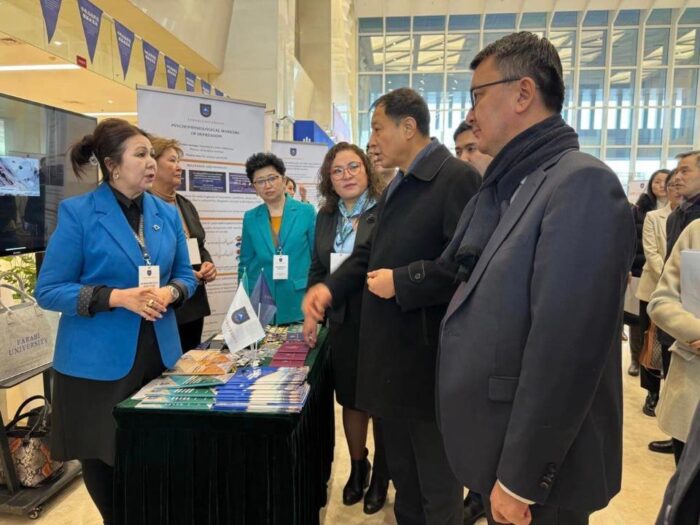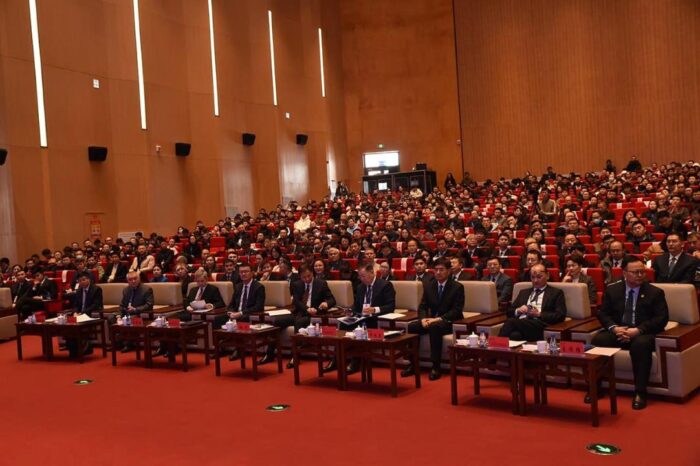ASTANA – Al-Farabi Kazakh National University (KazNU) held its first scientific and innovation exhibition in Urumqi, reported the Ministry of Science and Higher Education on Jan. 27.

Photo credit: Ministry of Science and Higher Education
The exhibition brought together 196 provosts and heads of research centers of local universities, representatives of more than 600 Chinese universities, heads of 40 large manufacturing enterprises, and the diplomatic corps of the two countries, as well as scientists and entrepreneurs.
Kazakh researchers presented patented scientific and innovative projects ready for commercialization, including dietary supplements and herbal teas from medicinal plants, new antibacterial drugs that treat sturgeon species for various diseases, chemical galvanic packaging and nano-spacecraft, assembled for the first time at KazNU and launched into space.

Photo credit: Ministry of Science and Higher Education
The international scientific symposium of Kazakh and Chinese universities followed the exhibition.
The meeting participants discussed common goals and cooperation in education and science, commercialization of KazNU scientific projects, and exchanged experiences.
Kazakh Deputy Minister of Science and Higher Education Darkhan Ahmed-Zaki noted the significance of the event in China, which consolidated the innovative ideas of scientists from the two countries and emphasized the role of international experience in the development of university science.
“The work of the international exhibition and symposium as a scientific platform opens a new stage of productive cooperation between the most talented scientists of China and Kazakhstan. I believe that this initiative will make a great contribution to attracting partners to implement effective Kazakh scientific projects,” said Ahmed-Zaki.
As a result of the working visit of the KazNU delegation to Urumqi, bilateral memorandums were signed with Xinjiang University in chemistry and chemical engineering, law, information technology, Earth remote sensing, academic and scientific cooperation.
KazNU also agreed with Xinjiang University to open a joint research center of Chinese-Kazakh universities and signed a memorandum with Xinjiang Normal University.
